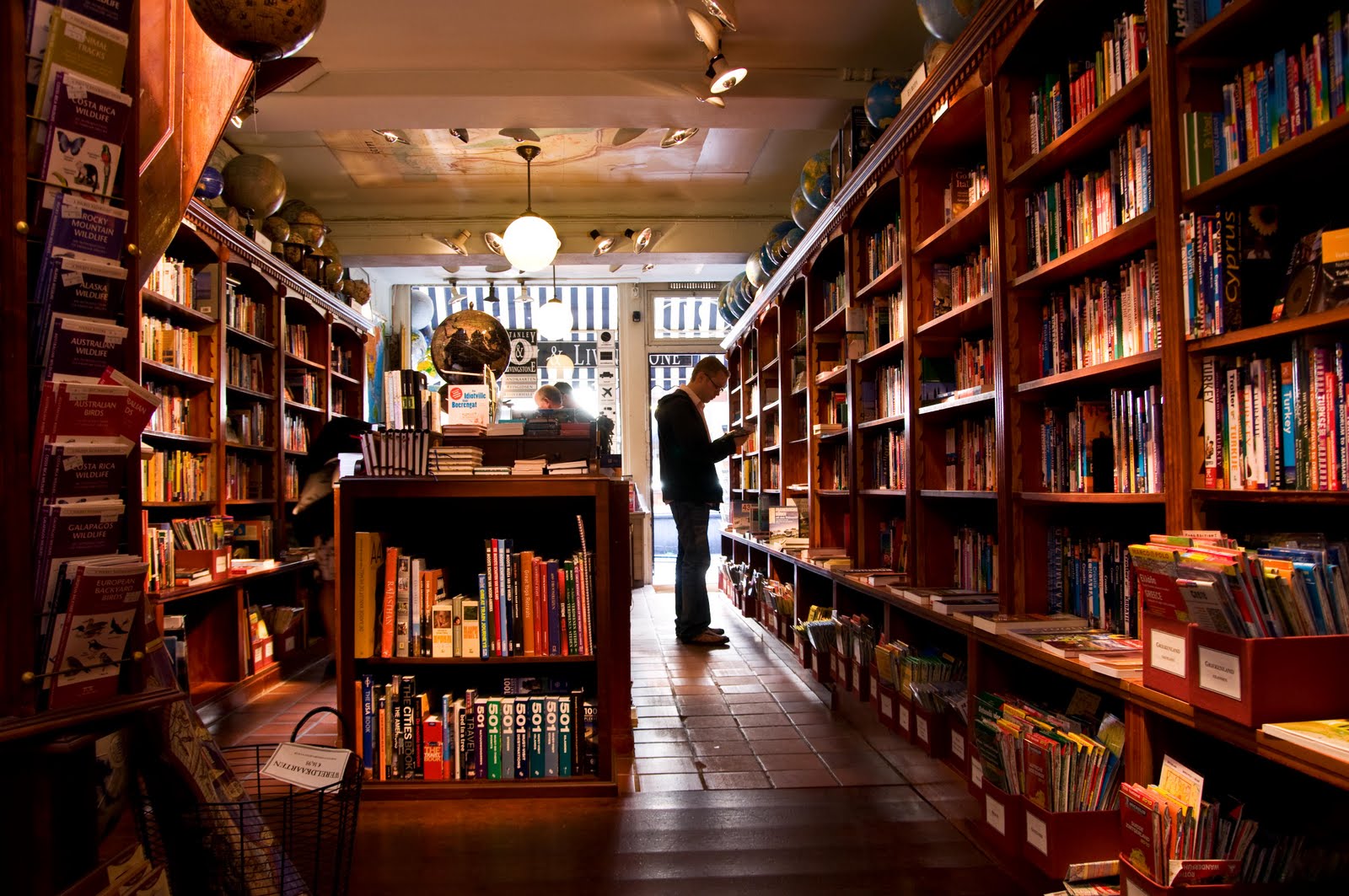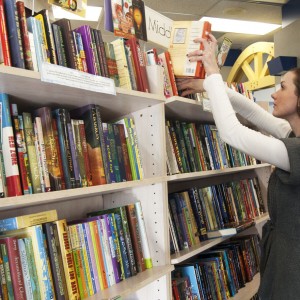When eReaders first came onto the scene, there was an instantaneous, viscerally negative reaction. Millions of readers protested that they liked the weight of books, the smell, the ability to skim and flip to their hearts’ content. They liked to display their libraries, consisting of pristine hardcovers, and dog-eared paperbacks with tiny, handwritten notes cramped into the margins.
The intensity of this reaction has died down to a quiet murmur since consumers realized that they also like the convenience and affordability of eBooks, but the continued presence of the eBook vs. Print book debate has established one thing: print books, although decreasing significantly in sales, aren’t going to disappear in the near future.
However, this is not necessarily the case with the sellers of print books…
Last week, Wise Ink posted on Facebook about the future of bookstores. With the growth of the indie publishing industry, more and more authors are choosing to sell their books directly or through online retailers. Oftentimes, these methods are used instead of selling books in brick and mortar establishments.
This shift is due to the fact that today’s authors aren’t just writers, they’re authorpreneuers. The successful ones think like retailers. The ease of buying and reading eBooks is seductive for a modern reader, plus the affordability of eBook production and print-on-demand self-publishing options are changing the game when it comes to book distribution.
So in the changing climate of the book industry, are bookstores still relevant?
From the demise of Borders in 2011, it’s clear that the traditional model needs to evolve to reflect the times…but what’s the best way to do this?
One of the major advantages a brick and mortar store has over Amazon or other online retailers is customer service. Face-to-face interaction and the help of a trained professional can turn the simple act of buying a book into an experience.
It is the successful brick and mortar bookstores that take the buying experience and transform it into something even more special:
-
Most Barnes & Noble bookstores have a café inside, serving coffee, desserts, and sandwiches. and free wi-fi that invites customers to come in and spend time other than shopping.
Independent and small-chain bookstores have increasingly chosen to specialize their store to appeal to a particular audience rather than everyone:
-
BookBar in Denver and Visible Voice Books in Cleveland have built businesses based on pairing wine with books rather than with food.
-
The Andover Bookstore (part of the Hugo Bookstores) has a yarn shop inside their store, and they host several knitting and crochet clubs.
-
Watermark Books and Café in Wichita, Kansas takes book clubs seriously: they sponsor and host more than a dozen, and help private clubs select their next reads.
-
Mrs. Nelson’s Toy and Book Shop in La Verne, CA bills itself as a one-stop-shop for any kid. To expand their reach, they also do book fairs for schools and other community organizations.
The publishing industry is changing, and that includes the way things sell.
What ways do you think bookstores have to change to stay successful?




For self-publishing authors, the issue is not around how bookstores need to change, it has to do instead with distribution. When the book distributors realize the opportunities they are missing by not representing self-published authors, I believe a whole new opportunity will present itself for self-publishing authors. Brick and mortar bookstores remain relevant and for me personally, are one of my favorite places to hang out. Readers still like to touch and feel, flip through, perhaps skim books before making a purchase. I don’t believe this will change. Bookstores will benefit, however, by becoming more attentive to customers for the increasing need for human interaction and connection. Those that provide for opportunities to “gather” by offering food, beverages, workshops, classes, reading groups, etc. will continue to thrive.
Lauri Lumby
“midwife to your soul”
http://yourspiritualtruth.com
Good point Lauri.
From the perspective of a reader, what incentive do I have to visit a bookstore and purchase a book for $27 when I can order it online for $9.99 and have it immediately sent to my eReader?
With the exception of Portland’s Powell’s (a bookstore that literally takes up an entire city block) and other well-known stores, booksellers, unfortunately, are not able to compete unless they drastically cut the price of their merchandise.
As more and more readers make the switch to the Kindle and the like, there will be even less a reason to buy a tangible book.
Although my sister is a self-proclaimed book lover who enjoys the convenience of ebooks, I still walk in the light and do not own ebooks. Convenient has never described my reading experiences. In my earliest reading experiences, reading books was most often inconvenient — for others. When I was in my early teens, my mother threatened me with loss of dinner if I brought another book to the table. I didn’t eat dinner that night and stayed in my room to read books. I didn’t miss the food. My mother eventually relented.
I have written about my love of the physical book over ebooks on my blog — Don’t Look Behind That Curtain! .
Continuing my previous message that was rudely interrupted by a tech glitch. (Did they know I was criticizing them?)
As a reader, I support independent bookstores whenever I can. My local favorites include Uncle Hugo’s and Uncle Edgar’s (2 stores in one!), Magers and Quinn, and Dreamhaven.
As a reader, how reading material is published is irrelevant in some ways. As a writer, however, I tend not to submit to publications that are exclusively electronic. I want readers to have something physical of my words to touch and hold in their hands. I’m not a self-publisher because I can’t get my mind around the business of writing which is probably why I won’t make a living doing what I love. The money, contrary to lore, does not come.
I am in agreement with Lauri; bookstores -particularly the indies- should begin the strategic process of partnering with indie authors, and leave their silent distain for them at home. The main reason is from the business perspective: the number of traditional publishers are decreasing (through consolidation/mergers, or dissolution), which of course further narrows the channel flow of distribution.
I read something the other day from Jane Friedman’s blog that an indie bookstore owner was asking self-publishers to boycott using Amazon, and work harder to keep places like his in business. I want to see no business fail in a perfect world, but excuse me? So, give up the revenue stream so many authors depend on to get their books purchased in Timbuktu, all so that I can beg you to carry my book, carry your expense model, while you look at the tip-end of your nose at my book?
I am condfident the indie bookstores will figure it out. They have no choice. Can you hear me now?